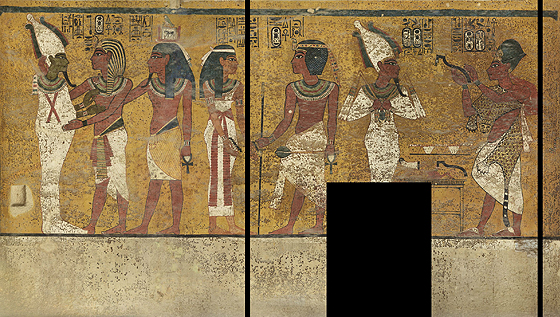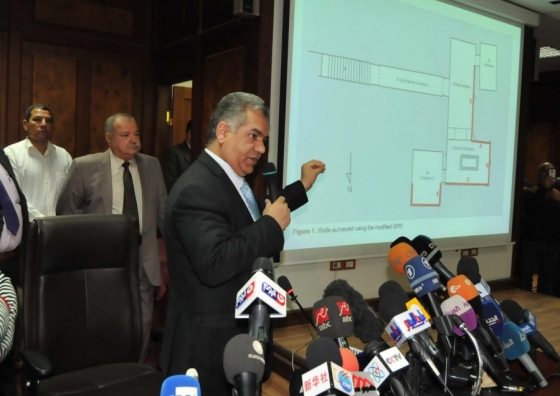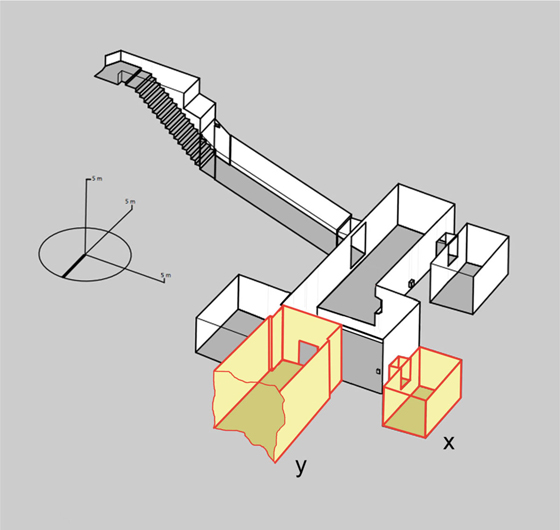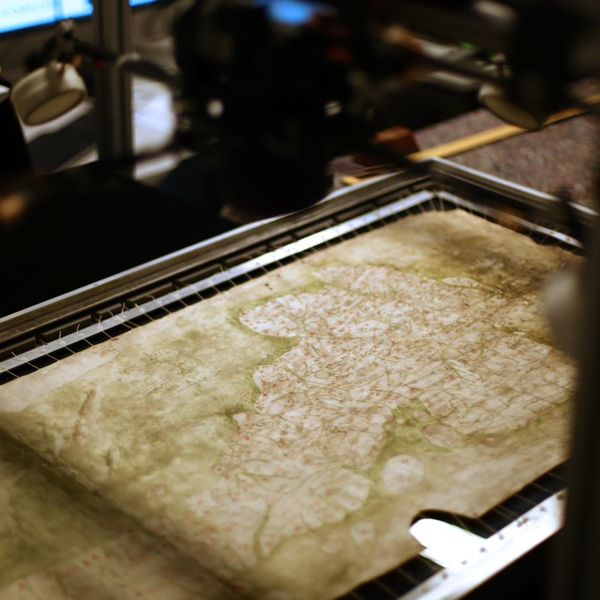The Burial of Nefertiti?
In Summer 2015, British archaeologist Nicholas Reeves published his detailed observations based on the 3D data of the Tomb of Tutankhamun. In his paper ‘The Burial of Nefertiti’, Reeves identified what seem to be the traces of 2 sealed doors, which he believes will lead to the undiscovered tomb of Nefertiti.

Marked in black is the entrance to one of the undiscovered rooms that could be behind the North wall of Tutankhamun’s tomb according to Nicholas Reeves’ hypothesis
Marked in yellow are the undiscovered rooms as for Reeves’ hypothesis

North Wall, surface relief (positive), showing numbered features, partition wall traces and internal door-frame, in red
The possibility gained major international media attention (see: CBS News’ report by Alex Ortiz – Nicholas Reeves interviewed by CBC Egypt). An international press conference was held by then-Antiquities Minister Dr. Mamdouh Eldamaty in Cairo on October 1st, 2015. World-renowned archaeologist and former Egyptian Minister of Antiquities Zahi Hawass shared the following message on his Facebook page on the 1st of October after the conference in Cairo: “Tutankhamun and the Valley of the Kings are in the news again. Whatever is or isn’t discovered, this story is about the use of technology to preserve and discover more about the past. Find out about the amazing technology used by Factum Arte to scan the tomb!” (watch the video).

The international press conference in Cairo
A documentary by Blink Films (‘King Tut: the Hidden Chamber’) also aired on National Geographic in 2016 with several experts and Egyptologists expressing enthusiasm and curiosity regarding the potential discovery.
Radar scans performed in November 2015 examined specific walls within the Tomb of Tutankamun using a specially-modified ground-penetrating radar, and Dr. Khaled El Anany (appointed as Minister of Antiquities in March 2016) confirmed the need for further radar scans to take place inside the Tomb. During a conference held at the National Museum of Egyptian Civilization in June 2016, the debate was still pressing as reported by the Spanish newspaper ABC.

Egypt’s Ministry of Antiquities Dr. Mamdouh Eldamaty during the press conference Image © Ministry of Antiquities







